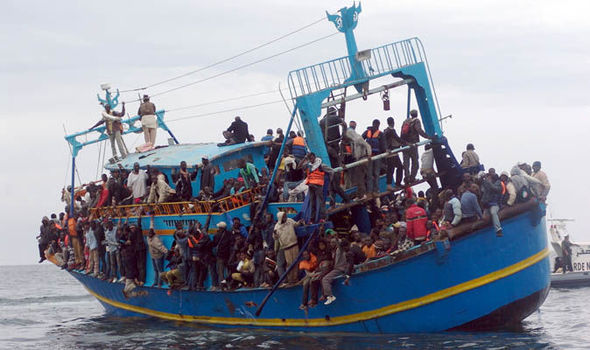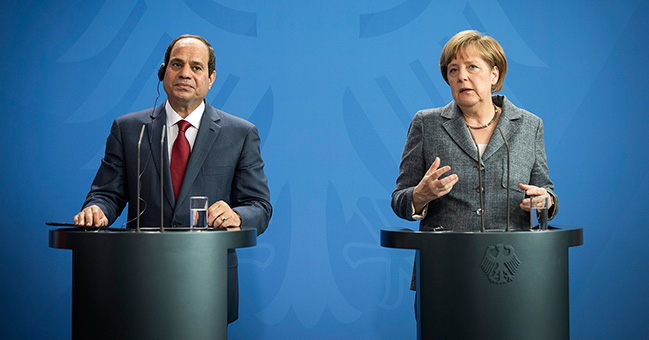Alwaght-German Chancellor Angela Merkel has visited Egypt and Tunisia and held talks with leaders of the two countries with illegal migrants topping the agenda.
Merkel commenced her trip on Thursday visiting Egypt and then Tunisia with her scheduled visit planned a trip to Algeria called off after President Abdelaziz Bouteflika fell ill.
Merkel's visit to Egypt and Tunisia comes at a time when Germany is facing a crisis following an unprecedented increase in illegal immigrants to the country.
Egypt and Tunisia among the major routes used by African and West Asian migrants seeking to cross the Mediterranean to Europe. The two countries also neighbor Libya which is the main gateway of illegal migrants to Europe.
Merkel seeks to stop flow of migrants
Therefore, Merkel's visits to Egypt and Tunisia took place to limit migrant flow to Germany and Europe amid increasing cases of xenophobia and Islamophobia.
During her stay in Cairo, Merkel offered Egypt $500m to support its economic program and its small and medium-sized businesses in a bid to stem the flow of illegal immigrants from that country. Currently, German investments in Egypt are estimated to be a total €1.5 billion that provide around 22,000 jobs.
During a joint press conference with Merkel, Egyptian President Abdel Fattah el Sisi warned that growing terrorism and conflicts in the West Asia region affect Europe and the whole world, urging collective efforts to obliterate terror groups and reach political solutions in chaos-stricken regional states including Libya and Syria. For her part, the German chancellor said "there are routes for illegal immigration from Libya to Germany. We have a lot of mutual concerns and interests in putting an end to this."
Turkey Factor
The visit to Egypt also comes amid Germany's diplomatic spat with Egypt's regional rival Turkey. Authorities in Ankara have condemned Germany for cancelling rallies of Turkish residents due to be addressed by Turkey's ministers and accused Berlin of giving "shelter" to Turkey's enemies, an apparent reference to supporter of US-based cleric Fethullah Gulen. As the diplomatic spat between the two countries escalated, Turkish President Tayyip Erdogan said a German journalist being held in Turkey was a "German agent" and a member of an armed Kurdish militant group.

In Tunisia, Merkel said Berlin and Tunis had agreed to take back 1,500 rejected Tunisian migrants from Germany. Tunisian President Beji Caid Essebsi said those who want to return voluntarily will be able to receive aid." Merkel also said the German government would provide Tunisia with 250 million euros in aid for development projects.
Some EU states blame Turkey for exacerbating the migrant crisis in Europe and blackmailing the continent to gain concessions before stemming the flow of migrants.
While Merkel reached a deal with Egypt and Tunisia on ways of preventing from crossing over to Europe, her trip was a subtle warning to Turkey that it should toe EU's line especially being a NATO member and stop it proximity to Russia. EU countries want Turkey's policies in Syria to be coordinated with those of Brussels.
Merkel seeks to stop flow of migrants before crucial polls
The visit by Merkel to the two North African states is important for her political survival as she faces parliamentary elections in her country later this year. She will be seeking to continue her grip on power for a fourth consecutive term. US President Donald Trump has blamed Merkel for accepting migrants in the country, saying one “very catastrophic mistake” was “taking all of these illegals” at the height of the migrant crisis. With the election of Trump and Brexit victory in the Britain, extremist Far-right party the Alternative for Germany (AfD) has made gains in the wake of the migrant crisis. Therefore by stopping the flow of migrants and returning some who are already in Germany, Merkel intends to stop the rise of far-right anti-immigrant politicians.



























